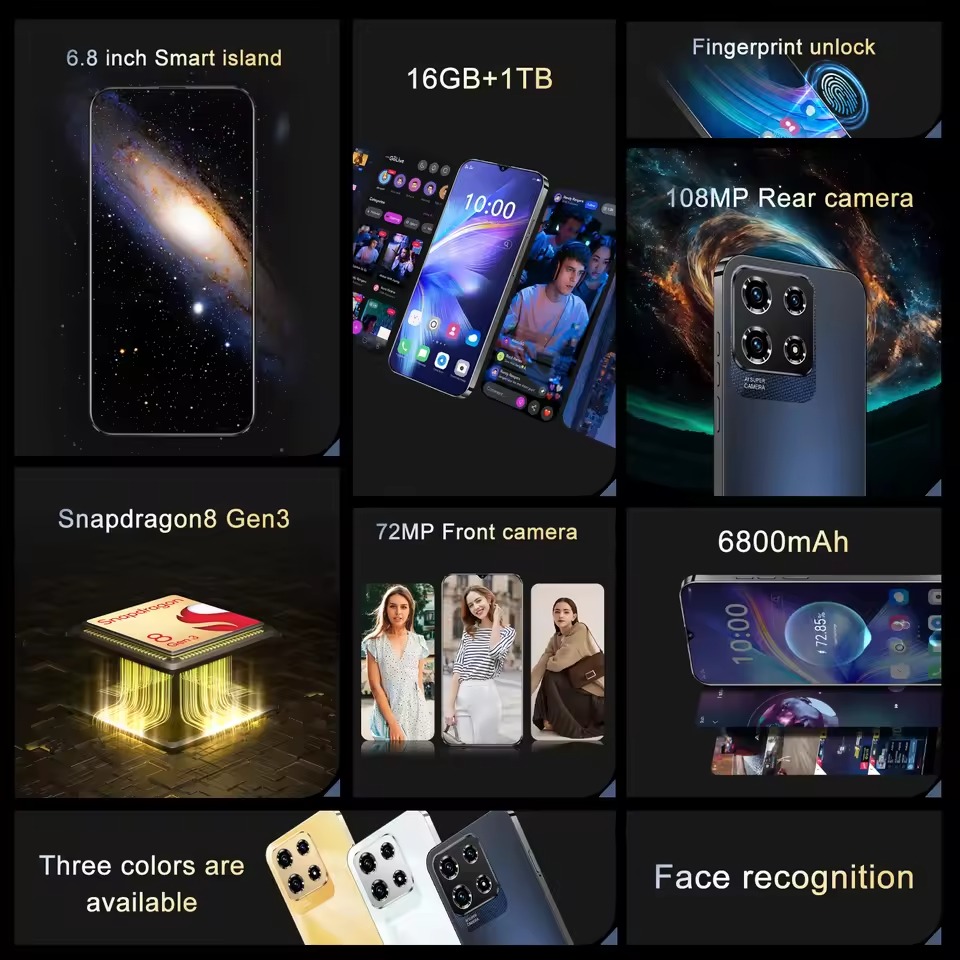The Importance of Mobile Security in 2025
As we navigate through 2025, mobile security has never been more critical. With advancements in technology, our Android phones are now central to managing our personal and professional lives. Bank transactions, email correspondences, and private conversations take place at our fingertips. Thus, protecting these devices from cyber threats becomes paramount.
Cyber-attacks have evolved, becoming more sophisticated and harder to detect on Android devices. Hackers use various tactics to breach security. These include malware, phishing schemes, and network espionage. A compromised phone can lead to identity theft or financial loss. The stakes are high with so much personal data on the line.
Privacy concerns are also at the forefront. With increasing reports of data breaches and unauthorized tracking, Android users are more aware of their digital footprint. Maintaining privacy in this era of ‘big data’ is a significant challenge.
In this landscape, the question arises: do I need a VPN on my Android phone? A VPN, or Virtual Private Network, is a tool that can enhance mobile security. It encrypts internet traffic and masks IP addresses. By doing this, it hides online activities from prying eyes. It makes it harder for cybercriminals to target your device.
Governments and corporations also surveil online activities. This adds another layer of concern for Android users. A VPN can help shield our online behavior from such entities. In the connected world of 2025, mobile security is not just an option; it is a necessity. As we rely more on our phones, we must be proactive in protecting them from both cyber threats and privacy intrusions.

Understanding VPNs and How They Work on Android Devices
A Virtual Private Network (VPN) serves as a private tunnel between your Android phone and the internet. As a safety tool, a VPN encrypts your data. This keeps outsiders from seeing your online actions. To start with, a VPN app on your phone connects to a VPN server. This server could be anywhere in the world. Once connected, the server hides your real IP address. In turn, it looks like you’re accessing the web from a different place.
VPNs use encryption protocols to secure your data. These are sets of rules for data transformation. They make your data unreadable to others. If someone tries to look at your data, they find only mixed-up information they can’t use. Even if you connect to an untrusted network, the encryption keeps your information safe.
When connected to a VPN, your Android device sends data through an encrypted tunnel. This tunnel goes to the VPN server. Then, the server sends your data to the internet. It does this as if the server is the data’s origin, not your phone. Websites see the server’s IP address, not yours. When the data returns, the server gets it first. It then encrypts the data again and sends it back to you.
Android has built-in support for certain types of VPNs. But for a strong defense, specialized VPN apps are better. They offer more features, like location choices and advanced security measures.
Pros and Cons of Using a VPN on Android
As our dependence on Android devices grows, using a VPN can offer notable benefits. But like any technology, VPNs also have some drawbacks. It’s critical to weigh these pros and cons to decide if you need a VPN on your Android phone.
Pros:
- Enhanced Privacy: A VPN masks your IP address. This shields your identity online, keeping your browsing habits private.
- Better Security: Encryption via a VPN protects your data. This is crucial on public Wi-Fi, where risks are higher.
- Accessing Restricted Content: With a VPN, you can bypass geoblocks. This means you can access content not available in your region.
- Safer Transactions: VPNs secure your online transactions. This protects you from potential fraud on unsecured networks.
Cons:
- Potential Speed Reduction: Encryption can slow down your connection. This might affect streaming or downloading.
- Cost: Many reliable VPN services require a subscription. Free versions may offer less security.
- Complexity: Some users find VPNs complex. They need to choose the right service and learn how to use it.
- Battery Drain: Running a VPN can use more battery. This can be a concern for Android users on the go.
In conclusion, VPNs offer strong privacy and security benefits. They protect your online presence on your Android phone. Yet, they may come with speed reductions and extra costs.

When You Should Consider a VPN for Your Android Phone
Having discussed the importance of VPNs, it’s crucial to understand when to use them on your Android phone. Here are scenarios where a VPN becomes essential:
- Using Public Wi-Fi Networks: Public Wi-Fi lacks security. A VPN protects your data from possible hackers on these networks.
- While Traveling: Access your home country’s services. Bypass geo-restrictions with a VPN when abroad.
- Maintaining Privacy: Keep your internet habits and personal information away from prying eyes. A VPN ensures your online anonymity.
- Accessing Work Resources: Safely connect to your company’s network. Use a VPN to secure remote work access.
- Avoiding Censorship: In restricted regions, a VPN helps reach blocked content and services.
Implementing a VPN service on your Android device can significantly boost your digital security. Especially if you often find yourself asking ‘do I need VPN on my Android phone’, consider these scenarios. Then, assess your daily internet use to see if you often encounter these situations. If you do, it may be time to invest in a VPN.
VPNs and Public Wi-Fi: A Necessary Combination?
Public Wi-Fi networks are everywhere. Coffee shops, airports, and parks offer free internet. But, there’s a catch. Public Wi-Fi is often unsecured. This means anyone can see what you do online. Using a VPN on your Android phone on public Wi-Fi is a must.
A VPN hides your online activity. It encrypts your data, making it tough for hackers to get your information. Think of it as a secure bubble. Inside it, everything you do stays private. Even on an open Wi-Fi, it’s like you have your own private network.
Public networks are not safe for sensitive actions. Don’t check emails or bank accounts without protection. A VPN is your shield against cyber threats in such spots. It is an essential tool when you’re out and about.
Here’s the deal – always turn on your VPN when connecting to public Wi-Fi. This simple step can save you from a lot of trouble. When asking ‘do I need VPN on my android phone?’, think of public Wi-Fi risks. It gives a clear answer – yes, you do.
To conclude, on public Wi-Fi, a VPN is not just helpful; it’s necessary. It keeps your personal data safe. It’s the smart choice for anyone who values their privacy and security.

Comparing Top VPN Apps for Android in 2025
Choosing the right VPN app for your Android phone in 2025 requires some research. Here are a few top contenders worth considering for their balance of security, features, and usability.
- PrivacyGuard VPN: Known for robust encryption methods. It ensures top-notch data security. Users praise its user-friendly interface. It also offers a wide range of server locations.
- SpeedStream VPN: As its name suggests, emphasizes on maintaining your connection speed. While encrypting your data, it still allows for smooth streaming and downloads.
- GlobalAccess VPN: Offers excellent tools for accessing geo-restricted content. Ideal for travelers looking to connect to their home services.
- SecureMobile VPN: Features extra layers of security. It protects against malware and phishing attacks. A great choice for the security-conscious.
- EcoNet VPN: A newer player with a focus on minimizing battery usage. It’s designed specifically for mobile devices and is gentle on your phone’s power reserve.
- UltimaVPN: Boasts an easy set-up process. Great for those who want simplicity. It also has a consistent track record of dependable connections.
Each of these apps has its strengths and may be suited for different Android users. When asking, ‘do I need VPN on my android phone?’, consider your own needs. Think privacy, security, speed, and features. Look for credible reviews and trials before making your choice. With the right VPN, you can add a strong layer of protection to your Android device.
Setting Up a VPN on Your Android Phone: A Step-by-Step Guide
Setting up a VPN on your Android phone doesn’t have to be daunting. Here’s a straightforward guide to get you started.
- Choose a VPN: Select a VPN app. Look for trusted names and strong reviews.
- Install the App: Download it from the Play Store. Install it like any other app.
- Open the App: Find its icon on your home screen. Tap to launch it.
- Sign in or Sign Up: If you have an account, log in. Or, create a new one.
- Configure Settings: Explore the app. Set preferences for security and connection.
- Connect to a Server: Pick a server from the list. Look for one that suits your needs.
- Verify the Connection: Check for the VPN icon in your status bar. It means you’re connected.
- Browse Securely: You can start browsing. Enjoy enhanced privacy and security.
- Disconnect: When done, remember to disconnect. Go back to the app to turn off the VPN.
Tips:
- Always use a strong password for your VPN account.
- Update the VPN app regularly for the latest security.
- Test your connection with a different server if you face issues.
Following these steps ensures your Android phone is more secure. It is especially true when you are questioning, ‘do I need VPN on my android phone?’. These steps also help keep your data private. With a VPN set up, Android users can enjoy peace of mind while online.
The Future of Android Security and VPN Use
As we look ahead, Android security will continue to adapt to new threats. Cybersecurity experts predict that the need for VPNs will grow. Here’s why:
- Increase in Cyber Threats: Threats will evolve, and VPNs will play a key role in defense.
- Stricter Privacy Laws: New laws may require better protection of personal data.
- Advancements in Technology: With 5G and beyond, secure connections will be vital.
- More Sophisticated Hacking Attempts: As hacking methods get cleverer, VPNs will be a crucial barrier.
- Growth in Remote Work: The rise in working from home means more security is needed on public networks.
To keep pace, Android may integrate more VPN-like features natively. VPN providers may introduce newer, even more advanced technologies for encryption and anonymity. It may get to the point where asking, ‘do I need VPN on my Android phone?’ is no longer a question, but a standard part of using a smartphone.
Users will likely become more security-savvy. They may demand built-in VPN services for all their devices. As a result, VPNs might not be a separate app but a core function of future Android systems.
We might also see increased collaboration between VPN services and Android device manufacturers. This could lead to pre-installed VPN software on new phones. In 2025 and beyond, the partnership between Android security and VPNs looks to be strong, becoming an essential aspect of the digital experience for users everywhere.


